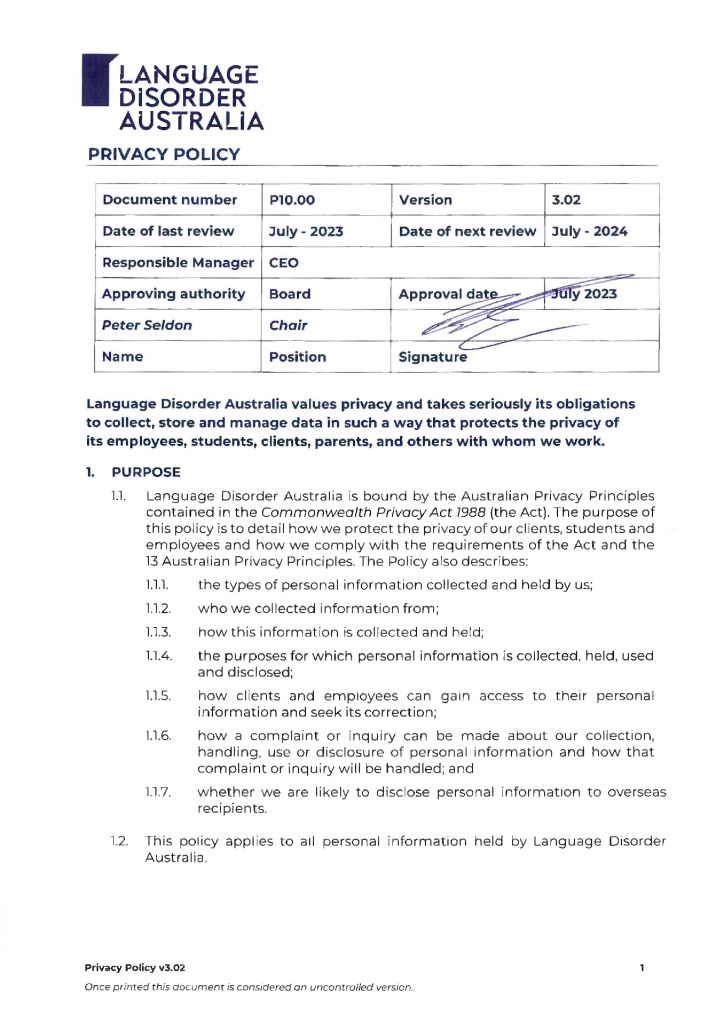- What is Language Disorder?
Language Disorder impacts a child’s ability to understand and use language.
Language Disorder is a neurodevelopmental disability that impacts a child’s ability to understand and use language. It impacts children and young people’s everyday social interactions and education.
What is Language Disorder? - Bright Door Clinics
- Mancel College
- School Support Services
Every child deserves the chance to succeed at school.
Getting a good start in school provides the foundation for a child’s learning and development for the rest of their lives.
School Support Services
Privacy Policy
Language Disorder Australia values privacy and takes seriously its obligations to collect, store and manage data in such a way that protects the privacy of its employees, students, clients, parents, and others with whom we work.







